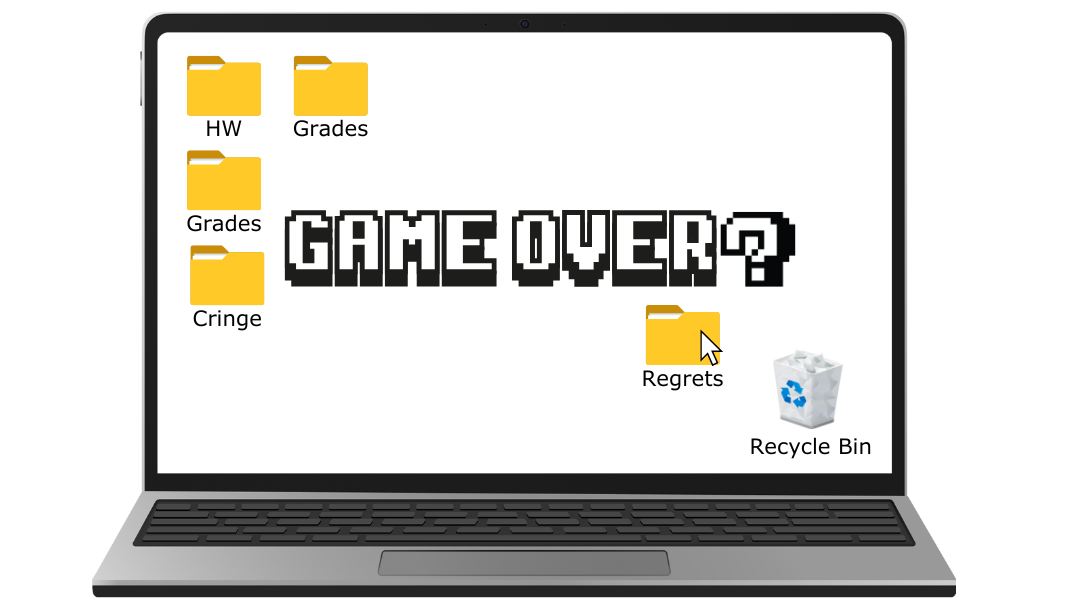
By Teresa Fang, Stentorian Editor-in-Chief
“I’ve set myself to become the King of the Pirates, and if I die trying, then at least I tried” is one of the many great lines from “One Piece” (1999-present) I think about often. Monkey D. Luffy, a silly but optimistic boy with the ability to stretch his body like rubber, accurately captures a rather fantastical but current perspective on attaining excellence in life—if I do not excel, then why would I pursue? I would rather be unknowing than know failure.
A few weeks ago, I received my college decisions. Now, I’ve never been the social butterfly winner of everything great and holy, but I consider myself fairly well-rounded as an applicant. Yet, when I started opening the letters, I realized that the feeling of satisfaction was very rare. In other words, the results were unexpectedly expected.
I was mediocre.
What does it mean to be mediocre? Merriam-Webster defines mediocre as “of moderate or low quality, value, ability, or performance: ordinary, so-so.” It already sucks to be called “so-so,” but even further I’d argue that the modern use of mediocrity is much simpler (and more brutal). Mediocrity is the failure to excel.
There’s nothing wrong with being mediocre. The only problem was that my computer screen did not match my ego and pride. I felt humiliated. Let down by none other than myself. By living this day alone, I knew that other people would also be doing this, and they would ask me in return. It is embarrassing to be reluctant to reply.
I went on spring break with my head hanging low. Upset at myself, not for being mediocre, but for feeling embarrassed to be mediocre. Is my self-esteem this fragile? That I can’t even tolerate the possibility that I may not excel at everything I do? So pathetic.
I am pathetic, but so are most people. It’s our nature to excel because it feels good. Being handed a blue ribbon warrants us a little more pep in our step. The pleasure and glee are multiplied when we post and promote these ribbons to the rest of the world through likes, comments, and shares.
There’s nothing wrong with being mediocre. The only problem is that we feel there is nothing worthy of celebrating in mediocrity. There’s nothing impressive about learning your way around using public transportation. Seeing zero assignments to do on Canvas. Jack Black saying “chicken jockey.” If it’s not worth celebrating, then it’s not special.
In the same way judges rule people guilty or innocent, we deliver our own verdicts as mediocre or exceptional. In a time where anyone can easily leave a mark on the world through social media posts and 10-second shorts, being mediocre is almost like a crime (in the least flattering, least interesting way). We perceive being mediocre as an either-or option.
The minute our binary perspectives designated ourselves as mediocre, we find ourselves stuck between judgment and self-consciousness. What value do I have if I can’t get out of here? If I’m anything but exceptional?
Why would we be so stringent with our happiness? Leisure is frowned upon, and failure calls for punishment. We may not all be content if we had a “the great” attached to the end of our names, but there is just a big difference between being recognized and being “great-less.” It is appealing to be recognized, but there is also so much freedom abandoned in settling for mediocrity. Do we always have to excel to have value? Have we regressed enough to times when not attending an Ivy for undergrad is embarrassing rather than endearing?
There’s nothing wrong with being mediocre. The only problem is that we believe mediocrity to be a problem. What if we expanded our narrow, binary perspective across a scale, into a spectrum? What if I valued the result not by my performance in comparison to others, but by its influence on my outlook on life? Indeed, the “oh, Yale!” and “where’s that college again?” still exist on this scale—but not necessarily at the endpoints. The value of my life is not evaluated by the decisions, but by the process. Was it a meaningful process? Did it give me joy and sometimes misery? Yes, and even if I could have done some things differently, my accomplishments are valuable experiences.
Hence, let’s redefine mediocrity as not a failure to excel, but just one experience of many on a spectrum of a set standard. Mediocrity is not a shameful measure of performance, but a measure of meaningfulness. That way, even a poor performance, which you can consider a mediocre experience, can be a learning opportunity. These learning opportunities drive us to discover the world and society, inviting new discoveries about the world and, perhaps, ourselves.
What if our drive to be not mediocre is just a purpose to excel? What if we didn’t have a purpose? What if I applied to college for fun? What if all I went through in the November and December grind was to enjoy the feeling of that grind being over? What if I could laugh, be carefree, and celebrate the one single instance of confetti filling my screen? There is so much joy, happiness, satisfaction, and freedom in these experiences.
There is so much untouched potential in mediocrity, to be free of judgment and simply live for the experience. Rather than saying the generic “don’t be afraid of failure,” how about we recognize it as “risk failure” instead? Embrace our mediocrity, and celebrate just being able to be here.
At the end of the day, I realize that I’d rather know failure than be unknowing.